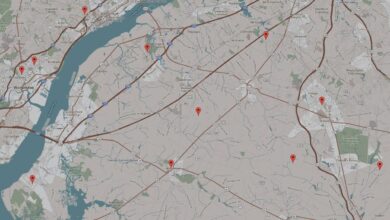
Concern is escalating within Europe’s Jewish communities as antisemitism sees a significant uptick, following the October 7th attacks by Hamas that resulted in the death of approximately 1,200 people in Israel—the largest killing of Jews since the Holocaust.
Michel Dreifuss, a 64-year-old retired tech sector worker in Geneva, reflects the widespread unease, having recently purchased a tear-gas spray canister as a precaution due to the surge in antisemitism in Europe. The reverberations from the Hamas attack and Israel’s subsequent response have reached Europe, unsettling a continent with a long history of deadly anti-Jewish sentiments.
The recent killings in Israel have shaken Europe, a continent well-acquainted with centuries of anti-Jewish hatred. The trauma of the past century, particularly the events leading up to and during World War II, adds a chilling dimension for those only a generation or two removed from the victims of historical atrocities.
Holocaust survivor Herbert Traube, speaking at an event in Paris commemorating Kristallnacht, expressed dismay at the lack of a massive popular reaction against the recent attacks in Israel, highlighting the complex nature of responses to antisemitic incidents.
While antisemitism is broadly defined as hatred of Jews, an ongoing debate centers around distinguishing criticism of Israel’s policies from pure antisemitism. Israeli leaders, including Prime Minister Benjamin Netanyahu, and some watchdog groups have been criticized for blurring these lines, potentially undermining opposition to the country’s policies.
In the aftermath of the October 7th attack, antisemitic incidents in Europe have surged. France reported 1,247 incidents in just over a month, nearly three times the total for the entire year of 2022. Denmark has seen cases rise significantly, and the UK recorded over 1,000 antisemitic incidents—the highest for a 28-day period.
The impact extends to the youngest members of society, with Jewish school children facing bullying and being questioned about Israel’s actions. In response, there are discussions about blending in better, with some considering covering traditional symbols like skullcaps and mezuzahs.
Incidents such as a riot at a Russian airport, a firebombing of a Berlin synagogue, and an assault on a Jewish woman in Lyon, France, underscore the rising concerns. Some community members are altering their lifestyles, and there is a growing sentiment among certain individuals to consider moving to Israel for increased safety.
The pro-Palestinian demonstrations have added another layer of tension, with chants like “From the river to the sea, Palestine will be free.” While some argue it is a call for Palestinian freedom and not anti-Jewish, many Jews see it as inherently anti-Jewish, calling for the destruction of Israel.
In response to the heightened fears, hotlines for psychological support and initiatives like primers on addressing antisemitism in schools are being established. As the conflict persists, Jewish communities in Europe find themselves compelled to take action against the spread of antisemitism.



